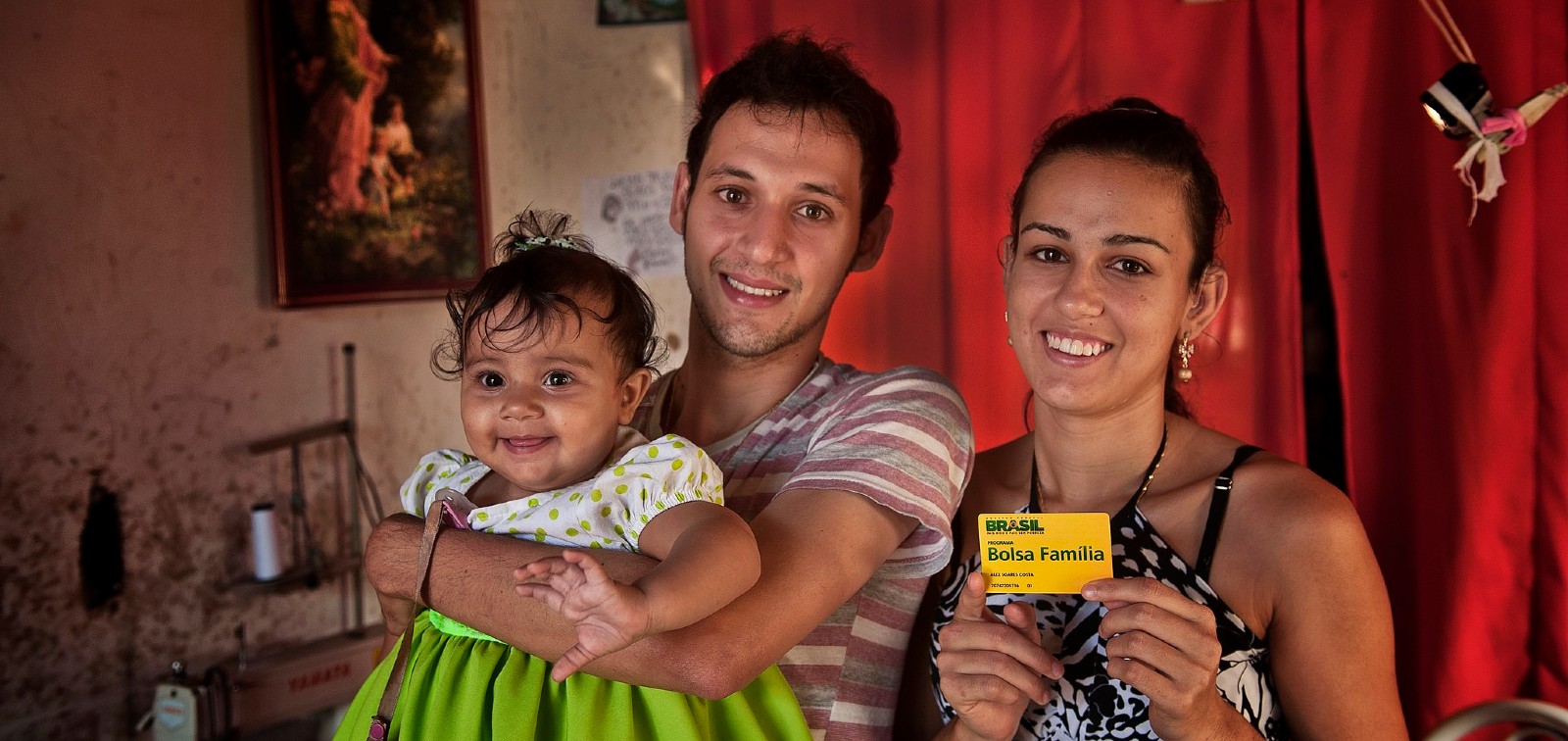Cash Transfer Social Programmes Can Reduce Maternal Mortality
A study of the impact of Brazil’s Bolsa Família programme finds that conditional cash transfers reduce maternal mortality, especially among young women
21.06.2021
Reducing poverty and improving access to health care are two of the most effective ways to decrease maternal mortality. Poverty and health care access can both be improved through conditional cash transfer programmes, which put money in the hands of beneficiary families when certain conditions—such as attending scheduled medical visits—are met. A new study published in BMC Medicine assessed the effects on maternal mortality of one of the world’s largest conditional cash transfer schemes, Brazil’s Bolsa Família programme, over a period of 11 years. The study was led by Davide Rasella, a researcher at the Barcelona Institute for Global Health (ISGlobal), a centre supported by the ”la Caixa” Foundation.
Using data from 2,548 Brazilian municipalities between 2004 and 2014, the study found that Bolsa Família was significantly associated with a reduction in maternal mortality, i.e. the number of women who died during pregnancy or within 42 days after giving birth from any pregnancy-related cause. This reduction in mortality was proportional to the levels of coverage and years of implementation of the programme, reaching as high as 17% in municipalities where the programme had been consolidated over the past 11 years.
The effect was strongest in young mothers (under 30 years old), suggesting that cash transfers from Bolsa Família during childhood and adolescence could reduce maternal mortality in adulthood and, consequently, have an intergenerational effect on newborns and help break the cycle of poverty.
The Bolsa Família programme, established in 2004, was also associated with other findings: a lower proportion of pregnant women who do not attend any prenatal visits, a reduction in the hospital case-fatality rate due to delivery, and an increase in the proportion of in-hospital deliveries.
The programme had already been shown to reduce infant mortality and poverty-related infectious diseases, but its effect on maternal mortality had yet to be studied.
Why These Programmes Work: Poverty and Health
The study identified several mechanisms that could explain the possible relationship between conditional cash transfers and maternal mortality. “First of all, these programmes establish a minimum usage of health services for child and maternal health as a condition for receiving money allowances,” explained Rasella. “In the case of Bolsa Família, the conditionalities for most transfers include compliance with the national prenatal care visit scheme, which may increase the use of skilled birth attendance services.”
Secondly, cash allowances could improve women’s nutritional status and, consequently, their health status at the time of delivery. Cash transfers empower women both in their households and in society, while also improving their educational attainment and economic status, all of which can lead to better nutrition. By helping to solve problems of distance and transport, cash transfers also facilitate women’s access to health facilities andskilled care, including the prescription of micronutrient supplements (folic acid, iron, calcium, etc.) with the aim of reducing anaemia and associated complications during pregnancy and childbirth.
Health care access can also improve the treatment and management of maternal diabetes and hypertension, as well as the detection and management of HIV and other sexually transmitted infections. In Brazil, the leading direct causes of maternal mortality are hypertensive disorders (23% of all maternal deaths), followed by sepsis (10%), haemorrhage (8%), complications of abortion (8%) and placental disorders (5%).
Finally, increased demand could, in the long term, also trigger improvements in the supply of health services.
Behavioural Changes Take Time
Another important finding of the study is that the effect of Bolsa Família was observed after a few years of operation. “This could be associated with the fact that it takes time to induce behavioural changes, both in terms of lifestyle and the use of health services,” commented Rasella. In addition, since cash transfers are conditional on children attending school, over time the programme could also lead to a better understanding of the importance of prenatal visits, contraceptive methods and family planning.
Maternal mortality remains a public health problem across the globe: an estimated 295,000 women died of maternal causes in 2017. Most of these deaths occurred in low- and middle-income countries, particularly those with greater social inequalities and lower incomes. The link between poverty and maternal mortality takes the form of difficulty accessing public services, unhealthy environmental conditions, illiteracy, social exclusion, low household income and food insecurity.
“Assessing the health effects of cash transfer programmes in low- and middle-income countries is particularly relevant in the current—and probably long-lasting—global economic crisis due to COVID-19, because these poverty-relief interventions could help the most impoverished populations,” concluded Rasella.
Reference
Rasella, D., Alves, F.J.O., Rebouças, P. et al. Long-term impact of a conditional cash transfer programme on maternal mortality: a nationwide analysis of Brazilian longitudinal data. BMC Med 19, 127 (2021). https://doi.org/10.1186/s12916-021-01994-7



